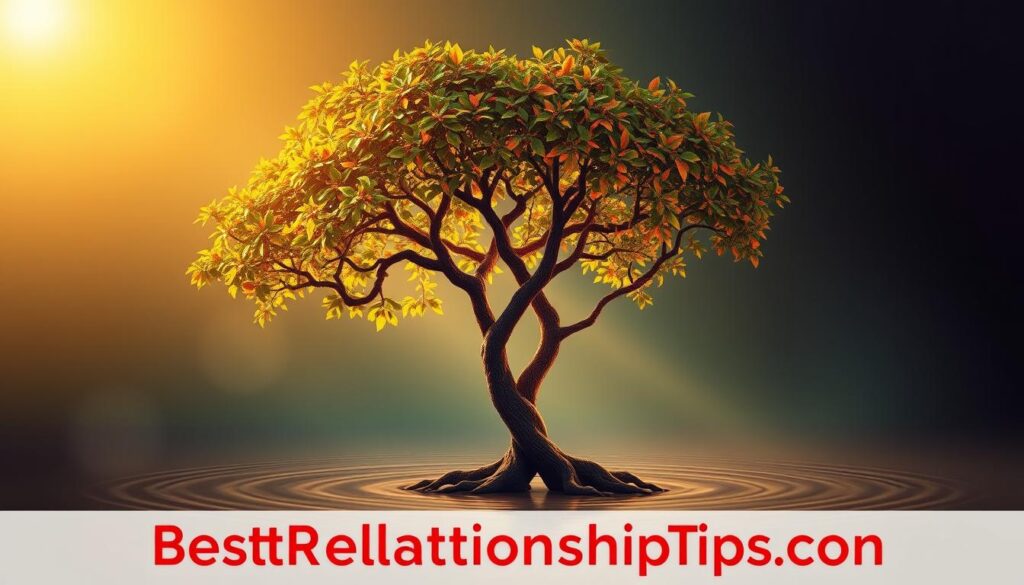
Navigating the complex world of modern dating can be challenging, especially when it comes to defining a relationship. Understanding how to define a relationship is crucial for building a strong, healthy connection with your partner. The journey of relationship definition involves clear communication, mutual understanding, and emotional vulnerability.
Knowing how to define a relationship starts with recognizing the importance of the DTR (Define The Relationship) conversation. This critical dialogue helps clarify expectations, reduce uncertainty, and create a foundation for a more comfortable partnership. Research suggests waiting two to three months before having this conversation to gain a deeper understanding of your potential partner.
Relationship definitions aren’t just about labels – they’re about understanding each other’s intentions, goals, and emotional needs. By being open and honest, couples can prevent misunderstandings and potential heartbreak that often stem from unspoken expectations.
Key Takeaways
- Communication is the cornerstone of defining a relationship
- Wait 2-3 months before having the DTR conversation
- Be honest about your emotional needs and expectations
- Recognize that relationships evolve over time
- Avoid ambiguous situationships through clear dialogue
Understanding What a Relationship Is
Navigating the complex world of romantic relationships can be challenging. Defining the nature and expectations of a connection is crucial for building strong, meaningful partnerships. Research indicates that understanding relationship dynamics takes time and careful communication.
Relationships come in various forms, each with unique characteristics and expectations. To help you understand the landscape of interpersonal connections, let’s explore some key aspects of relationship terminology and types.
Defining Key Relationship Terms
When discussing types of relationships, several important terms emerge:
- Casual Dating: A non-exclusive connection with minimal commitment
- Exclusive Relationship: Focusing romantically on one partner
- Committed Partnership: A long-term relationship with shared goals
Types of Relationships
Relationship advice experts suggest understanding different relationship structures:
- Romantic Relationships
- Platonic Friendships
- Professional Connections
- Family Relationships
“Understanding the nuances of relationships helps create meaningful connections.” – Relationship Expert Maria Sullivan
Importance of Clarity
Research reveals that couples who discuss relationship expectations early tend to have stronger connections. Studies show that waiting 2-3 months before defining a relationship can provide valuable perspective. Communication remains key in establishing mutual understanding and alignment of intentions.
Remember, relationship dynamics are fluid. Being open, honest, and willing to have ongoing conversations about your connection can lead to more satisfying and authentic partnerships.
The Role of Communication in Relationships
Communication serves as the vital lifeline of any healthy relationship. It goes beyond simple exchanges of words, transforming connections through meaningful dialogue and understanding. Successful partnerships rely on robust communication strategies that help partners navigate challenges and build deeper emotional bonds.

Effective communication involves multiple dimensions that contribute to setting boundaries in a relationship and establishing healthy relationship characteristics. Partners who master these skills create stronger, more resilient connections.
Verbal vs. Non-Verbal Communication
Communication transcends spoken words. While verbal exchanges matter, non-verbal cues often communicate deeper emotions and intentions. Key non-verbal signals include:
- Facial expressions
- Body language
- Tone of voice
- Physical gestures
Active Listening Techniques
Active listening represents a critical skill for relationship success. This approach involves:
- Giving full attention to your partner
- Avoiding interruptions
- Reflecting on what’s been shared
- Asking clarifying questions
“Listening is a form of acceptance.” – Mihaly Csikszentmihalyi
Expressing Needs and Boundaries
Transparent communication about personal needs and boundaries prevents misunderstandings. Healthy relationship characteristics include:
- Using “I” statements
- Being direct and respectful
- Acknowledging partner’s feelings
- Establishing clear personal limits
Research indicates that couples practicing open, honest communication experience greater relationship satisfaction and emotional intimacy.
Identifying Your Relationship Goals
Defining a relationship goes beyond simple labels. It’s about understanding the deeper connection and shared vision between partners. Relationship goals serve as a roadmap for mutual growth and long-term compatibility.
Successful partnerships thrive on clear communication and aligned expectations. Research shows that partners who work together towards common goals experience significant relationship benefits.
Short-term vs. Long-term Goals
When defining a relationship, it’s crucial to distinguish between immediate and future objectives:
- Short-term goals: Immediate relationship milestones
- Long-term goals: Shared life vision and commitments
“Setting specific, achievable goals can transform your relationship dynamics.” – Sherry Amatenstein, Relationship Therapist
Aligning Expectations with Your Partner
| Goal Category | Key Considerations |
|---|---|
| Communication | Regular check-ins, active listening |
| Personal Growth | Supporting individual and shared aspirations |
| Financial Planning | Aligned financial priorities and strategies |
The Importance of Mutual Growth
Partners who prioritize mutual growth experience deeper connections. Studies indicate that supportive relationships lead to:
- Enhanced personal development
- Increased relationship satisfaction
- Better goal achievement
Remember, relationship goals are not static. They evolve with your partnership, requiring ongoing communication, empathy, and willingness to adapt.
Recognizing Healthy vs. Unhealthy Dynamics
Understanding the difference between healthy and unhealthy relationship characteristics is crucial for building strong, supportive connections. Not all relationships are created equal, and recognizing the signs can help you navigate your emotional journey more effectively.
Signs of a Healthy Relationship
Healthy relationship characteristics are built on a foundation of mutual respect and trust. Key indicators include:
- Open and honest communication
- Mutual respect for individual boundaries
- Supportive encouragement of personal growth
- Ability to resolve conflicts constructively
- Shared goals and emotional connection
“Trust is established over time through consistent words and actions.”
Red Flags to Watch Out For
Identifying signs of a strong relationship also means recognizing potential warning signs. Some red flags include:
- Controlling or manipulative behavior
- Consistent disrespect of personal boundaries
- Constant criticism or emotional manipulation
- Lack of trust and transparency
- Isolation from support networks
Seeking Help When Necessary
If you notice persistent unhealthy dynamics, don’t hesitate to seek professional guidance. A relationship counselor can provide valuable insights and strategies for improving communication and resolving underlying issues.
Remember, a healthy relationship should empower and support both partners, fostering personal growth and mutual understanding.
The Impact of Personal Values on Relationships
Understanding personal values is crucial when exploring how to define a relationship. Values act as internal compasses that guide our choices, interactions, and emotional connections with partners. They represent our deepest beliefs and standards that shape relationship dynamics.
Personal values create a foundation for understanding relationship compatibility. Research shows a strong correlation between successful relationships and shared core beliefs. These intrinsic elements determine how individuals approach love, communication, and mutual growth.
What Are Personal Values?
Personal values are fundamental principles that define an individual’s character and decision-making process. They include:
- Compassion
- Honesty
- Loyalty
- Generosity
- Individual growth
Aligning Values with Your Partner
Relationship advice suggests that partners should engage in open discussions about their core beliefs. An interdependent relationship requires understanding each other’s needs and negotiating differences constructively.
“Values are the silent architects of our relationships, shaping our interactions without uttering a word.”
How Values Influence Decisions
Values significantly impact relationship choices, from financial planning to lifestyle preferences. Misaligned values can create internal conflicts and potentially lead to relationship dissatisfaction. Young individuals often discover that relationship success depends on mutual understanding and respect for each other’s fundamental beliefs.
By continuously exploring and discussing personal values, couples can create deeper connections and maintain a more harmonious partnership.
Building Emotional Connection
Romantic relationships thrive on deep emotional connections that go beyond surface-level interactions. Understanding the intricate dynamics of emotional intimacy can transform the way partners relate to each other.

The Importance of Trust and Transparency
Trust forms the cornerstone of strong romantic relationships. Research reveals that approximately 60% of couples struggle with emotional disconnection, highlighting the critical nature of building genuine trust.
- Create a safe space for open communication
- Practice active listening
- Share vulnerabilities gradually
- Demonstrate consistent reliability
Activities to Enhance Emotional Intimacy
Developing emotional intimacy requires intentional effort. Signs of a strong relationship include partners who actively invest in understanding each other’s inner worlds.
- Weekly check-in conversations
- Sharing personal hopes and fears
- Practicing non-sexual physical affection
- Engaging in mutual learning experiences
“Emotional intimacy is about creating a deep connection where both partners feel truly seen and understood.”
Navigating Vulnerability Together
Emotional connection demands courage. Over 70% of individuals find it challenging to express vulnerabilities without fear of judgment. By creating a supportive environment, couples can breakthrough these barriers.
Partners who successfully navigate vulnerability develop stronger, more resilient romantic relationships. The key lies in mutual respect, empathy, and a commitment to growth.
Conclusion: Taking the Next Steps
Defining a relationship is an ongoing process that requires commitment and self-awareness. When seeking relationship advice, remember that each partnership is unique and demands continuous effort from both individuals. The path to understanding how to define a relationship isn’t about reaching a final destination, but embracing a dynamic, evolving connection.
Evaluating Your Relationship Progress
Regular check-ins are crucial for maintaining a healthy partnership. Take time to reflect on your shared experiences, individual growth, and mutual goals. Ask yourselves honest questions about your emotional connection, communication patterns, and alignment of personal values. These moments of reflection can help you identify strengths and areas that might need additional attention.
Making Necessary Adjustments
Relationships are not static blueprints but living experiences that require flexibility. When challenges arise, approach them with empathy and openness. Be willing to listen, adapt, and compromise. Successful couples understand that growth means being comfortable with change and viewing challenges as opportunities to deepen their understanding of each other.
Embracing Change and Growth
Your relationship will transform over time, and that’s perfectly normal. Embrace this journey with curiosity and compassion. Stay committed to open communication, mutual respect, and continuous learning. By remaining patient and supportive, you create a foundation for a resilient, meaningful connection that can withstand life’s inevitable ups and downs.
